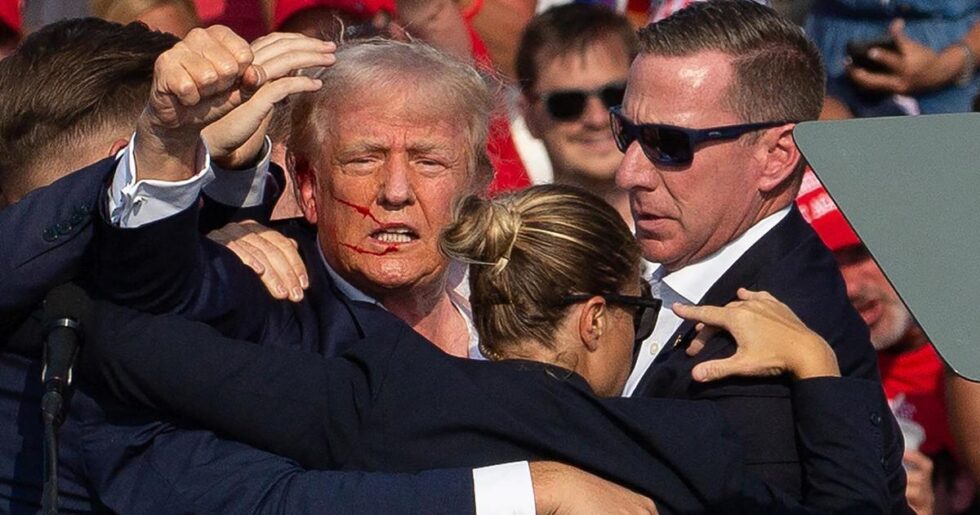
In a dramatic turn of events that has sent shockwaves through the political landscape, an independent report has highlighted alarming deficiencies within the United States Secret Service. This comes on the heels of a recent assassination attempt on former President Donald Trump, raising urgent questions about the agency’s ability to protect high-profile individuals in a time of escalating political violence. This comprehensive examination not only exposes systemic issues within the Secret Service but also underscores the need for immediate reforms to ensure the safety of public figures and, by extension, the stability of American democracy.
A Deep Dive into the Report’s Findings
Commissioned in response to the assassination attempt, the independent report reveals a disturbing picture of the Secret Service’s operational practices. It identifies several “deep flaws,” ranging from inadequate training and insufficient staffing to a lack of effective communication protocols. These weaknesses threaten the safety of not only the former president but also all individuals under the agency’s protection.
- Inadequate Training and Resources: The report indicates that agents are not receiving the rigorous training necessary to handle modern threats. In an era where tactics used by extremists have evolved dramatically, the Secret Service has fallen behind in updating its training programs. This has resulted in agents being unprepared for potential crisis situations.
- Staffing Shortages: Another significant concern highlighted is the ongoing staffing shortages within the agency. The report notes that these shortages hinder the ability of the Secret Service to provide adequate security detail for high-risk individuals. As the political landscape grows increasingly volatile, a robust workforce is essential for effective protective measures.
- Poor Communication Protocols: The findings also point to a troubling lack of coordination and communication among various units within the Secret Service. In high-pressure situations, quick and effective communication can be the difference between life and death. The report reveals instances where critical information was either delayed or lost entirely due to inadequate communication systems.
Broader Implications for National Security
The revelations from this independent report extend beyond the walls of the Secret Service and raise fundamental questions about national security. In an age marked by rising political extremism and violence, the ability to safeguard public officials is paramount. The flaws outlined in the report indicate that the agency may be unprepared for the contemporary threats facing American democracy.
In recent years, U.S. crime news has frequently been dominated by incidents of political violence, with an alarming rise in threats against politicians and public figures. This context makes the findings of the report particularly concerning, as it highlights vulnerabilities that could potentially endanger not only the individuals targeted but also the democratic processes that underpin the nation.
The Public’s Outcry and Political Ramifications
The release of the report has ignited a wave of public outrage and has drawn the attention of political commentators across the spectrum. Many citizens are demanding accountability and immediate reforms to address the glaring deficiencies in the Secret Service’s operational protocols.
Political analysts are emphasizing the need for swift action from Congress to address these issues. One analyst noted, “The safety of our leaders should never be compromised. This report reveals a systemic failure that requires immediate action.” The frustration among the public is palpable, especially as recent events have demonstrated that threats to public figures are not just possible but increasingly probable.
Moreover, the timing of this report comes at a critical juncture in American politics. As tensions rise and polarization deepens, the role of the Secret Service becomes more crucial than ever. The findings of this report serve as a stark reminder that the agency must not only protect individuals but also uphold the principles of democracy.
Potential Reforms and Future Strategies
As the nation grapples with the implications of this shocking report, discussions are already underway regarding potential reforms within the Secret Service. Experts and policymakers are advocating for a multi-faceted approach to address the agency’s shortcomings. Some proposed strategies include:
- Enhanced Training Programs: One of the most urgent needs identified in the report is the overhaul of training protocols. By implementing advanced training that incorporates modern threat assessment and response techniques, the Secret Service can better prepare its agents for the challenges they face.
- Increased Staffing and Resources: To ensure effective protective measures, there must be a commitment to increasing the workforce within the Secret Service. This may involve both recruiting us news agents and retaining current staff through improved benefits and job satisfaction initiatives.
- Improved Communication Systems: Establishing more efficient communication protocols is essential for the Secret Service to operate effectively in high-stakes situations. Investing in modern technology that facilitates real-time information sharing can enhance situational awareness and improve response times.
- Regular Assessments and Audits: Continuous evaluation of the agency’s operational practices is crucial. Regular audits can help identify emerging vulnerabilities and ensure that the Secret Service adapts to evolving threats.





